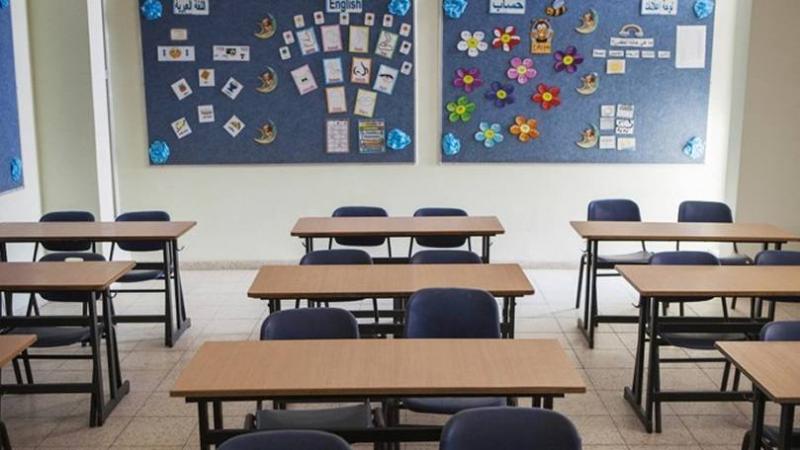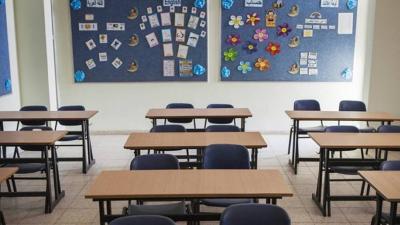A student contacts her teacher to ask for his opinion on leaving the public school and enrolling in a private school, as she doesn’t want to waste her time. She tells him that her parents expect the coming academic year to be filled with strikes, "if there is even education in the public system," as her father stated. This is a expected question, especially as the migration from public schools to private ones commenced with the end of the current academic year. Even though dollarizing tuition fees in private schools might limit this trend, some parents still borrow money or search "with lantern and wick" for foreign currency sources for one goal: "We want our children to learn." This is not available in the public schools, which experienced more than fifty days of strikes this year, severely impacting education and its objectives. There is nothing left in the curriculum to proceed for the official exam, and up until now, there has been no genuine review of what happened in the past years, nor has there been a real initiative to explain to the public what occurred and is still occurring.
**Emptying the Public School System**
Public education has been on a downward spiral since 2019. The COVID-19 pandemic and the severe economic crisis still plaguing Lebanon have led to successive closures of all schools, but their impact has been particularly pronounced on public schools. On one hand, these schools are largely unprepared to deal with a new form of education, and on the other hand, their teachers have, as usual, been proactive in demanding their rights through strikes. These movements peaked this year, cutting about 50% of actual teaching days.
Parents do not sympathize with the teachers, even if they acknowledge their problem, as the cost is paid by their children in public schools. In the past academic year, public school teachers decided to boycott from the very beginning: both enrollment and teaching. In contrast, private schools were quick to launch their programs in a manner not free from suspicion. They started classes even before a memo from the Minister of Education in September 2021, thereby attracting all reluctant students from public education. This movement, coinciding with the strikes, led to a 50% reduction in the number of students in public schools. Numbers vary between cities and villages and depend on the geographical proximity to private schools.
**Fears of a 2021 Scenario**
The coming academic year is not expected to differ from its predecessor, as there are no real initiatives to bring back public school teachers to their classrooms. The $90 aid from donor countries ceased with the end of the academic year, and to date, some teachers have not received it without convincing justifications. Additionally, the social assistance approved by the government is conditional upon attendance, and the possibility of it not being paid during the summer months looms, so the shadow of strikes continues to hover over public schools. Teachers are exhausted, searching for other jobs to "support" their families. Some have left the cities and moved to villages for the summer, aiming to save on utilities. "In the village, we don’t need a subscription; we can enjoy the land," says teacher Layla after closing her home in Beirut and stopping all related services. She rules out returning to teaching next year because commuting back and forth to school consumed her entire salary.
**Teacher Migration**
Public school teachers refuse to bear the responsibility for the students’ lost academic year. "We are human beings, made of flesh and blood, not sacrifices." Comparisons with private education are "entirely rejected." Their situation is not significantly better, as a private school teacher lives in constant anxiety about not renewing their contract with the school each year. Public school teachers admit their detachment from the general public, resulting in a lack of sympathy for them, despite the fact that they offer excellent education compared to private schools. One witty teacher remarked, "I entered a butcher shop where the owner criticized our strikes and asked him to sell me a kilo of meat for 18,000 lira; he refused and was horrified, so I told him I reject teaching his son for a salary equal to two and a half million."
Some teachers in the education sector do not count on strikes, so they opted for what they believe is the best solution for them, choosing to take unpaid leaves or suspensions to undertake private work or even to travel for work. Here, a member of the administrative board of the secondary education association expressed concern over "the migration of teachers from public education, not students," noting that the percentage of those leaving the profession has reached about 30%. He comments on the ministerial committee's resolutions, saying, "They do not concern us; the least we would accept is a resolution similar to what was given to judges, i.e., calculating the salary based on 8,000 lira." He adds, "Transportation allowances have not been paid since February 2021. Why should we believe promises today?"
In conclusion, it can be said that the upcoming academic year is at stake, and public education as a whole is in danger. Thus, one representative of secondary teachers warns that "the weapon of striking is firing back, hitting both teachers and students and all of public education." There is great fear of the entire public sector coming to an end. "We are the children of the state; we joined it when it was thriving, and today we contribute to its destruction and make people lose faith in it." He calls on all his colleagues to think carefully, "If the public school closes for a year, it will never open again."




